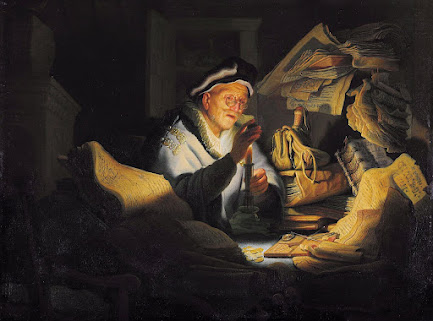He replied, “Go and tell that fox,
‘Behold, I cast out demons and I perform healings today and tomorrow,
and on the third day I accomplish my purpose.
The plan of Jesus and timeline on which the plan would be carried out were not to be determined by Herod or any other human. The hour of Jesus was one chosen in advance, and in fact determined in the plan of God from the very beginning. The Pharisees thought they could manipulate Jesus with threats, as though they could at least alter where he was able to minister even if they could not for the moment prevent him from doing so. But every threat had already been foreseen by Jesus. He would only ever be in precisely the places he was meant to be, doing the things he intended to do. No one who tried to take him before his time, before he himself allowed it to happen, would be able to do so.
Yet I must continue on my way today, tomorrow, and the following day,
for it is impossible that a prophet should die
outside of Jerusalem.
The Pharisees were unable to use fear of Herod to influence Jesus because Jesus knew precisely what the time and place would be for him to freely lay his life down for the sake of the world. As a culmination and summary of all of the prophets, most of whom Israel had also rejected, Jerusalem was meant to be the place where Jesus himself would be rejected. But Jesus did not go to Jerusalem because he celebrated the fact that he would not be received.
Jerusalem, Jerusalem,
you who kill the prophets and stone those sent to you,
how many times I yearned to gather your children together
as a hen gathers her brood under her wings,
but you were unwilling!
Jesus went to Jerusalem precisely out of love, because he desired to gather her children together as a hen gathers her brood. He went to do this even in spite of the fact that he knew they would be unwilling. He knew all the repercussions which would result from allowing himself to be put to death. He knew the judgment it would bring down on those who rejected him. But he knew that short-term punishment was worth it for the sake of the incomparable mercy that would ultimately be unlocked. Even if the house of Jerusalem would be abandoned for a time, Jesus would eventually gather all of those who were meant to be children of God into his Kingdom.
Jesus would die for the nation, and not for the nation only, but also to gather into one the children of God who are scattered abroad (see John 11:51-52).





_-_James_Tissot_(cropped).jpg)











